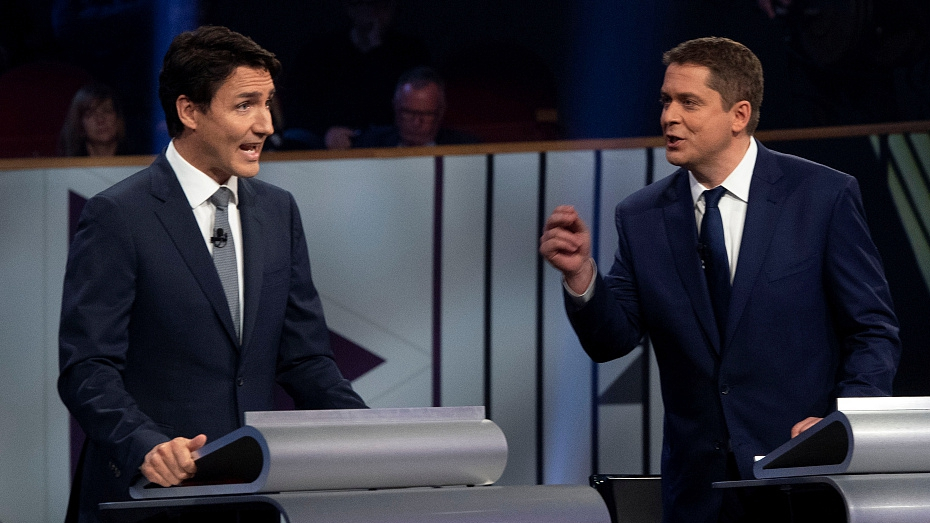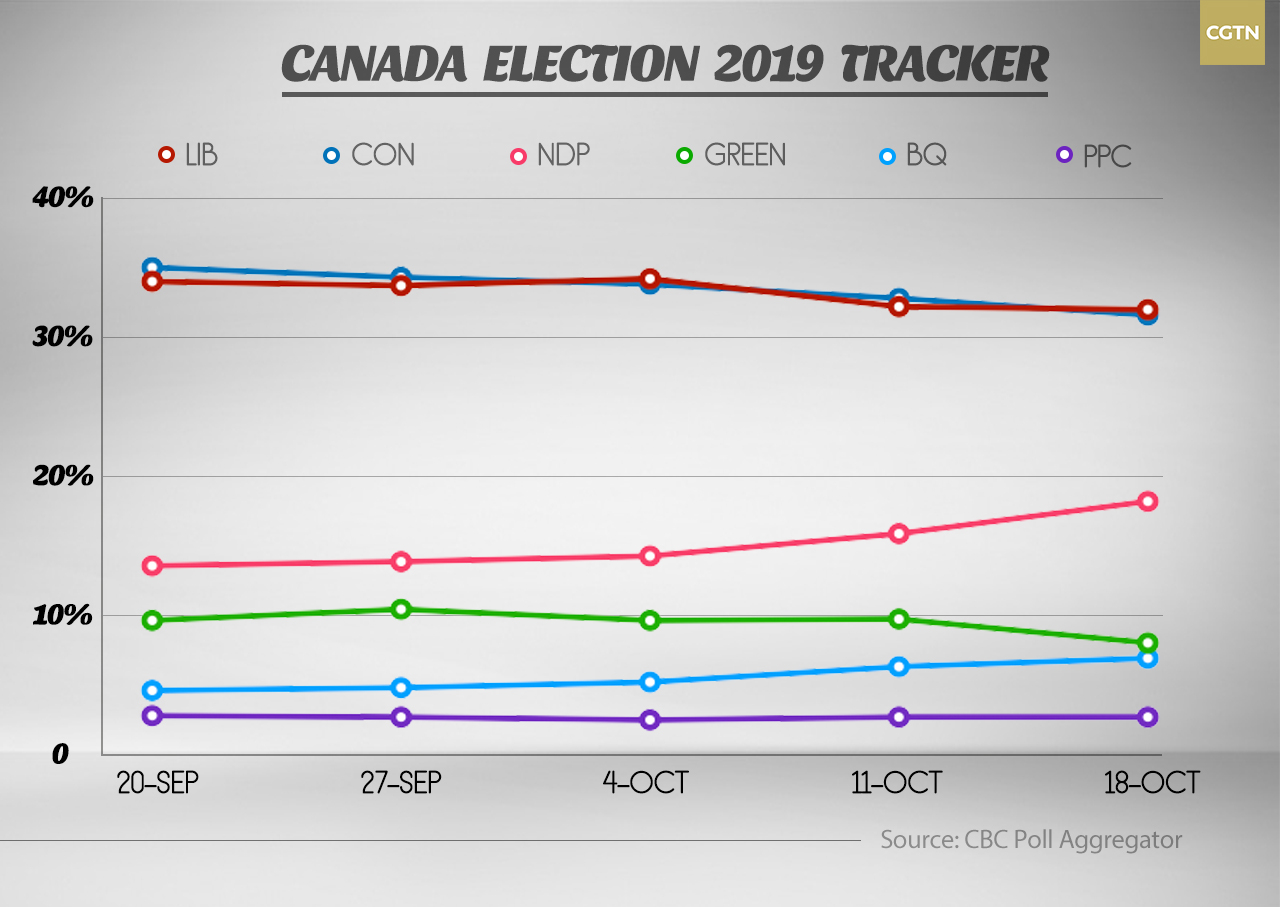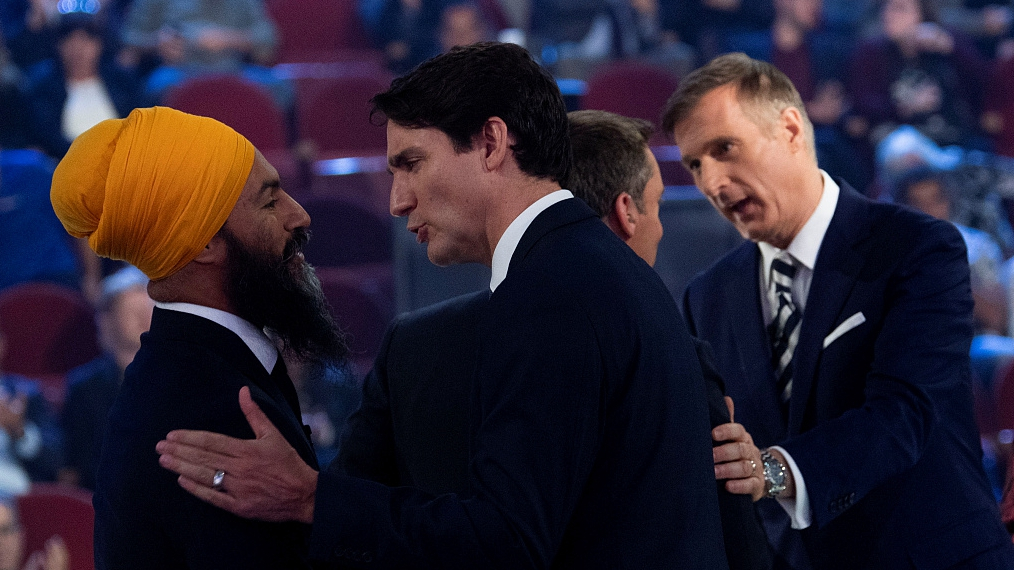
Canada goes to the polls on Monday in federal elections that will determine whether Liberal Party leader Justin Trudeau wins a second term as prime minister.
Polls indicate a campaign likely to be best remembered for controversies – from Trudeau's blackface pictures to Conservative rival Andrew Scheer's dual citizenship – is set to end in gridlock, with no party winning a majority.
Libs, Cons trend down
Trudeau's Liberal's soared during his first two years in office, at times touching close to 50 percent in CBC's polling tracker.
However, the prime minister's popularity took a dive over the SNC-Lavalin scandal and a tough trip to India in 2018, while his progressive credentials were questioned when photos of him wearing blackface were released during the campaign.
The Liberal Party has enjoyed a resurgence in the run up to the election however, closing a six-point gap with the Conservatives in June, according to the CBC tracker, to finish the campaign with a marginal polling lead.
Scheer's Conservatives initially profited from Trudeau's troubles, touching 36.9 percent in mid-2018 and building a solid lead, but have since fallen back.

The closing tracker suggests the Liberals are on course to win 31.8 percent of the national vote and the Conservatives 31.4 percent, with CBC projecting this could translate into 141 seats for Trudeau's party and 121 for Scheer's.
At least 170 seats are needed for a majority in Canada's 338-seat House of Commons.
The downward trend in the combined vote share for the two main parties – the poll tracker puts the Liberals and Conservatives on a combined 63.2 percent at the end of the campaign, down from 68.2 percent in mid-October – is a further indication that no party is likely to win a majority.
CBS gives the Liberals a 15 percent of a majority, against just one percent for the Conservatives.
NDP, BQ trend up
Smaller parties will therefore likely hold the balance of power. The chief beneficiary has been the New Democrats, led by Jagmeet Singh. His centrists gained around five percentage points as the two main parties lost five points, ending the campaign at 18.1 percent.
Singh could be the kingmaker post-election, most likely backing a Trudeau-led government, though Canada's electoral system means the party is projected to win just 34 districts.

Liberal leader Justin Trudeau and NDP leader Jagmeet Singh shake hands following a debate in Quebec, Canada, October 10, 2019. /VCG Photo
Liberal leader Justin Trudeau and NDP leader Jagmeet Singh shake hands following a debate in Quebec, Canada, October 10, 2019. /VCG Photo
The Bloc Quebecois, led by Yves-François Blanchet, has also sustained a small uptick and could be in a position to put Scheer in office.
The separatist party closed the campaign on below seven percent nationally, but has eaten into the Liberal Party's stronghold of Quebec. National polling of 6.9 percent translates into 30.9 percent in the province, which could net the party 39 seats according to CBC, and put it in a powerful position on Tuesday morning.